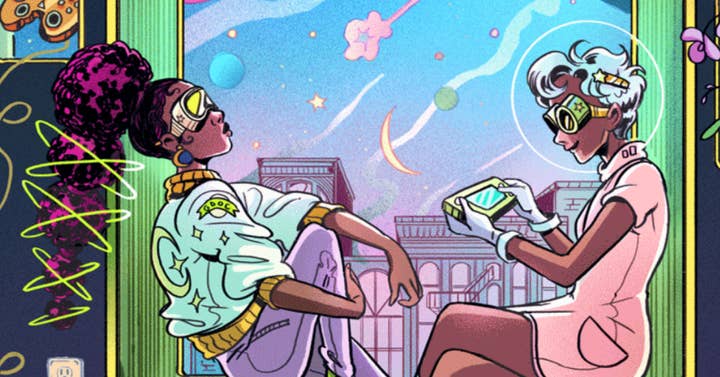An introduction to game worker cooperatives
At Game Devs of Color Expo, a panel shared their experience working in games as part of a worker cooperative, and why you should consider this business model
Worker cooperatives are still relatively uncommon in games, though a few high profile indie studios have popularised the business model in recent years.
Dead Cells' developer Motion Twin, The Glory Society, which was formed by Night in the Woods co-creators, or Goodbye Volcano High developer KO_OP: these companies all made the choice to be owned and operated by their staff on an equal footing.
During the 6th annual Game Devs of Color Expo, Alex A.K. (creative director at Soft Not Weak), Francesca Esquenazi (co-founder, CEO and producer at Future Club), and Eva-Léa Longue (secretary and animator at Lucid Tales) shed light on how worker cooperatives operate, and answered frequently asked questions that they had gathered on Twitter.
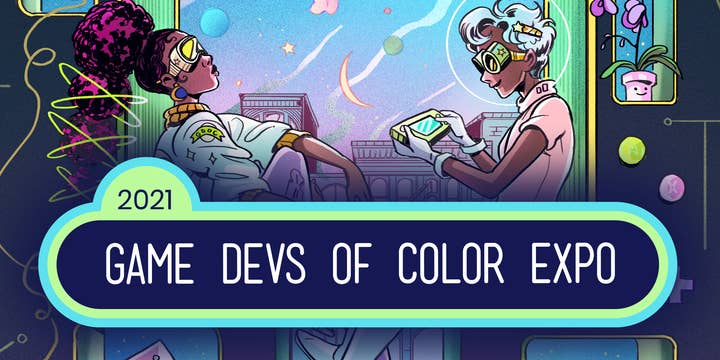
What is a worker cooperative?
The first question was of course to define what a worker cooperative is and how it works.
"In a nutshell a worker cooperative is an organisation that's owned and self-managed by its workers," Esquenazi explained. "So employees govern their business as a democracy."
Typically each employee has equal stake and equal voting in co-ops, she said, so one member of staff will have one share and one vote.
"Worker-owned cooperatives also focus on benefiting the employee-owners, not any external investors, and we work together among the employees to come together about business decisions and how to run the company," she continued. "We also work to give back to the community and help other co-ops as well. The key element about co-ops is really open communication. Everything is very transparent and shared among the members, so that everyone understands what's happening in the company and are able to influence the direction."
"The key element about co-ops is really open communication. Everything is very transparent and shared among the members"Francesca Esquenazi, Future Club
The panel shared seven principles that govern cooperatives; values that were defined in 1995 by The International Cooperative Alliance and that serve as guidelines for co-ops worldwide regardless of the industry they operate in:
- Voluntary and open membership.
- Democratic member control: the people who have the authority to make business decisions are determined by the workers.
- Member economic participation: workers equally participate and reap benefits, rather than those profits going to outside influences.
- Autonomy and independence.
- Education training and information: everyone has access to information about what decisions are being made and any training that needs to happen is provided.
- Cooperation among cooperatives: encourages co-ops to support each other and work together.
- Concerned for community: giving back to the community or trying to improve the industry overall.
Cooperatives need to have bylaws, which are a set of rules and regulations that detail how the company operates and the procedures for decision-making, among others.
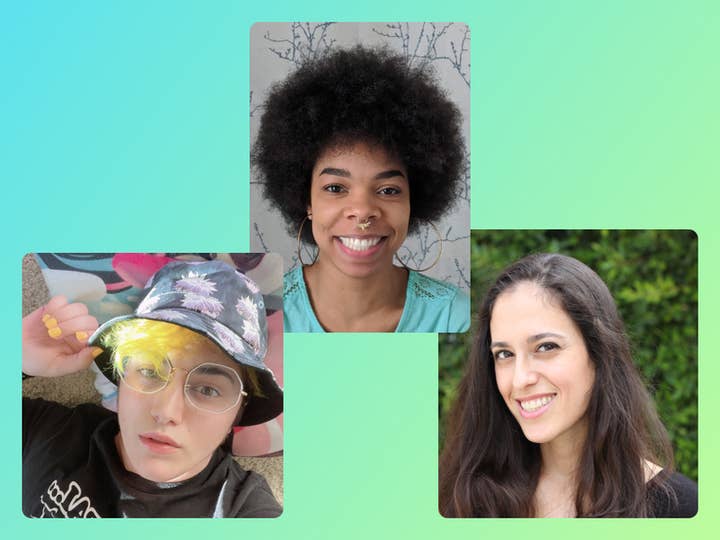
Who makes the decisions?
One of the most frequently asked questions the panel received was whether a co-op implies a flat hierarchy, and how decision-making actually works. Alex A.K. highlighted that "there's no one right way to do a co-op" and that the model does not automatically mean flat hierarchy.
For instance, Future Club decided to have a board of directors to make most of the business decisions about running the company. The studio started as a co-op of 14, which Esquenazi said is a bit larger than most of the co-ops she's seen, which are typically less than ten people.
"We have a board of directors of three and we can expand it to a larger number as the team grows larger, so that it's more representative of the people that are voting us into those roles," she said. "We also have it set up in our bylaws [that] really anyone can be in that role as long as they're elected, and anyone can be recalled in that role if they're not performing in the way they should."
Each year, the company has a meeting reviewing how things went, and vote for new board members.
"It's about having systems in place for accountability so that, if something happens, the workers can vote to take action"Alex A.K., Soft Not Weak
Another thing that Future Club has in its bylaws -- and is currently working on implementing -- is committees, so the workers take on some of the aspects of the management of the business through having different committees. This can be particularly important for dispute resolutions.
It's not a flat hierarchy at Lucid Tales either, with Eva-Léa Longue explaining that there is also a minimum of three people on the board at the studio: a president, a secretary, and a treasurer.
Soft Not Weak is, however, a flat hierarchy, Alex A.K. explained. The studio is currently only five people, with everything decided by vote. However, everyone at the company but A.K. is part time, making them de facto the person handling urgent business-decisions when needed, unless they are money-related.
"That doesn't mean that there's no accountability and that's what people I feel need to understand when they ask about flat hierarchy and who makes decisions," they said. "You're not really full-proofing for anyone never making mistakes or everyone's always being their perfect selves, really.
"It's more about having systems in place for accountability so that, if something happens, the workers can vote to take action and then change things or correct [it], as opposed to just having someone careening off the rails."
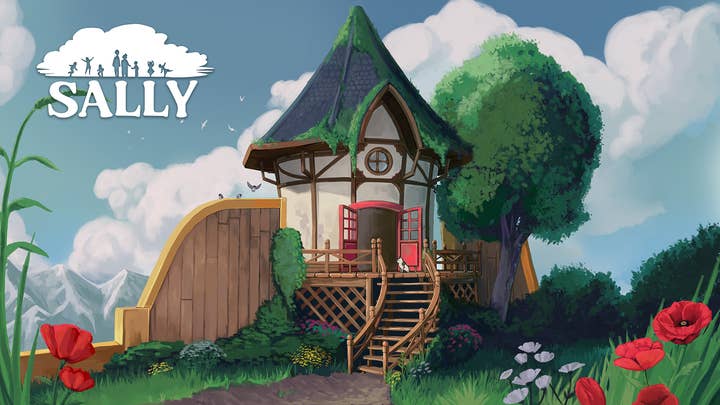
Does equal ownership mean equal salary?
The notion of equal salary is something that is slowly gaining traction in games.
Co-founder Astrid Refstrup said Triple Topping does it because they want to "send the signal that everyone is equally valid to the company," for instance.
Motion Twin also praised an equal pay system, saying it's "almost impossible" to claim one person's contribution has more of an impact on a game's performance than anyone else's.
However, worker cooperatives don't automatically mean equal pay, with Longue pointing out that a lot of people in the games industry are a bit fearful of the concept. While Lucid Tales doesn't currently make any money, the company does want to offer equal salary once it starts making profits.
"We just really want to try it just to see how it goes, because we just value each and everyone's contribution as equally lucrative to the cooperative," she said. "It's not because you're a programmer that you should earn more than an artist, for instance."
"We value each and everyone's contribution as equally lucrative to the co-op. It's not because you're a programmer that you should earn more than an artist"Eva-Léa Longue, Lucid Tales
Longue mentioned that in Canada, part of the profits also has to be reinjected into the cooperative to make sure that it stays afloat. That's not the case in the US, where most states don't have a legal framework for cooperatives, Alex A.K. clarified.
Future Club doesn't give equal salary to all its workers. Initially, when the co-op was created, salary was based on individual financial needs. Once Future Club got its first contract and money started coming into the company, the conversation on salaries was kickstarted again, with board members putting together a proposal based on a survey conducted among the team.
"Generally we do acknowledge that experience levels bring additional skill sets and values to the company," Esquenazi said. "So we broke it down into tier based salary bands, so we have a junior, senior, and director level tiers salary bands.
"We also have limits -- just straight up caps -- on what the most someone can get paid is, and we also have limits on the difference between the lowest paid person and the highest paid person, so it can't be more than a certain amount of money that we agree to. That's mainly just to make sure that we're being fair with [everyone]. Even though someone might be new in the industry, it doesn't mean that they should be making 500% less than the CEO."
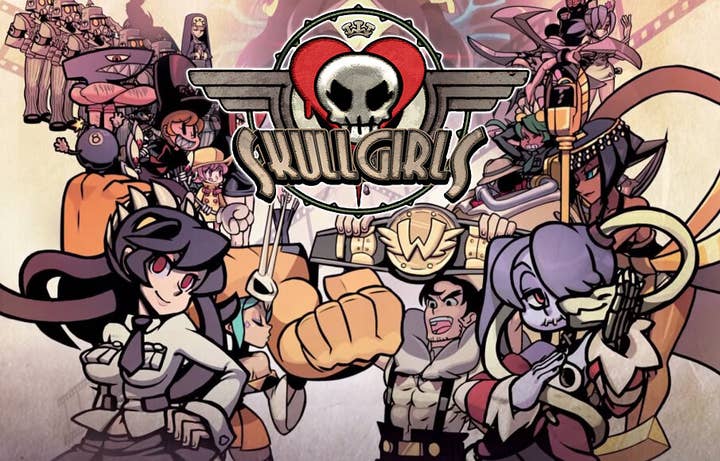
Esquenazi added that a co-op's salary model is something that is bound to evolve as the company changes and gets bigger as well, and reiterated the importance of talking frequently and openly about these things among the staff.
"It's super critical to make sure that everyone can understand why maybe this year [they] can't get a raise because it means we'll be able to operate for another six months, versus if we all get raises, we cut ourselves short. So just being able to give people that really clear transparency of: this is our financial situation as a company, and if we all get paid this, this is how much money we have, and if we all get paid more or less, then that's how that changes.
"That's really what I enjoy, being able to have those really open conversations so people can understand: it's going to be tough at the beginning, but it's an investment that I'm making in this company because I know that, in the future, we'll be able to produce something and I'll be able to get my equal share of that."
"I really think that everyone's contributions are equally valuable, but for me that doesn't mean that everyone's needs are the same"Alex A.K., Soft Not Weak
Soft Not Weak is "somewhere in the middle" between Lucid Tales' model and Future Club's one, Alex A.K. said.
"We're extremely all about 'from each according to their ability, to each according to their needs'," they said. "I really think that everyone's contributions are equally valuable, but for me that doesn't mean that everyone's needs are the same.
"Someone who has a $100,000 of student debt versus someone who has generational wealth -- we really try to get all of that into consideration, so even if your input into the company is equally valuable, your needs might not be, and we really wanted that transparency where we could just talk to each other and be straight up: this is the minimum I'm comfortable with just living, without having to eat ramen every day, this is the minimum I'll work for.
"We want to be able to apply that not just to us, but to any contractors we work with. We want to offer benefits, we want to offer enough for everyone to live comfortably wherever they're located, and we want that total transparency in wages. And I think that's really an important thing. Equal salary is one of those boogeyman of cooperatives, so I think it's very important to dispel that myth and be [clear] that, no, your bylaws define that, as long as you're not trying to exploit anybody and you have that accountability built into your system, you don't have to have equal salary for everyone."
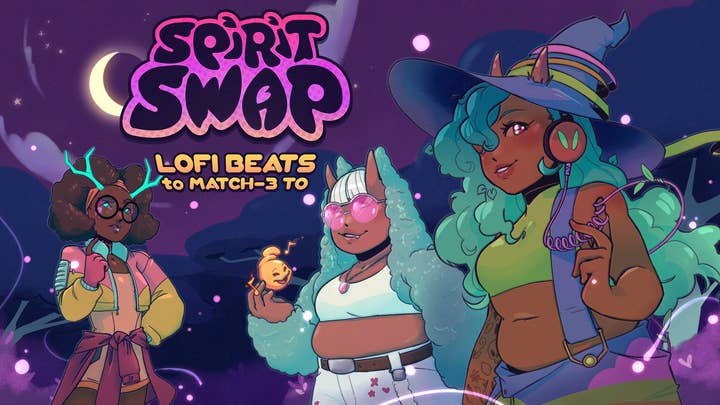
Why choose a cooperative business model?
Concluding the panel, which also covered topics such as how to work with contractors as a co-op and the mechanisms for removing members, the speakers touched upon the reasons why you might want to go for a co-op model in games.
"I'm just going to say it: it's not about you," Alex A.K. said. "And if you care about collective good and workers owning their labour, honestly, this is the best system I think we have under capitalism. You'll notice it's very flexible, so you can absolutely make a cooperative full of douchebags and just be a fucking blight on society. But don't! Honestly, it's about mechanisms of accountability."
This accountability can also be found by being part of a cooperative of cooperatives, such as FWGS: the Federation of Worker-Owned Game Studios.
"The really cool thing about FWGS and about this cooperation of game maker co-ops is that there is accountability within the group," A.K. continued. "And being in a group like FWGS really allows me to be accountable when I talk about these things to people at Lucid Tales, to people at Future Club, to see what they think and they can tell me: 'hey Alex that doesn't go with the cooperative principles'.
"These discussions are really important. So why choose a cooperative business model? Why choose to be in a cooperative of cooperatives? Because it keeps you honest and it keeps you fair, and it makes sure that the benefits end up with the workers. So do it!"
"If you care about collective good and workers owning their labour, honestly, this is the best system I think we have under capitalism"Alex A.K., Soft Not Weak
Esquenazi contributed to the creation of FWGS and detailed how it aims to support other worker-owned game companies.
"Our mission as a group is to really revolutionise the games industry and empower workers to advocate for fair wages, safe work environments, ownership of their work, and provide resources and knowledge about cooperative principles to the members and the public.
"It's a way to have a support group of other people who are like-minded and who maybe have gone through something that you're not sure how to go through. So it's a way for us to share advice, support, knowledge, among each other, and it's been really great."
Those interested can join the group on Discord. Alex A.K. added that the organisation is currently working on opening itself to others, and that's partly what motivated the speakers' presence at GDoCE.
"So far, FWGS is really white," they said. "It could stand to be less white. Massively. Don't let the three of us fool [you], we're here because I think marginalised people really could benefit from that structure and if democratising the games industry or the game work co-op model is the right way to go, the first people who should get resources are marginalised communities.
"So, that's why we're here. We want you. If you have any questions, come to us, and if you want to make a co-op, and you're like: hey what do I do? We're here. Come talk to us. Let's get this going, let's revolutionise the games industry."
More GamesIndustry.biz Academy guides to Working in Games
Our guides to working in games cover various perspectives, from hiring to retention, to landing the job of your dream or creating the right company culture:
